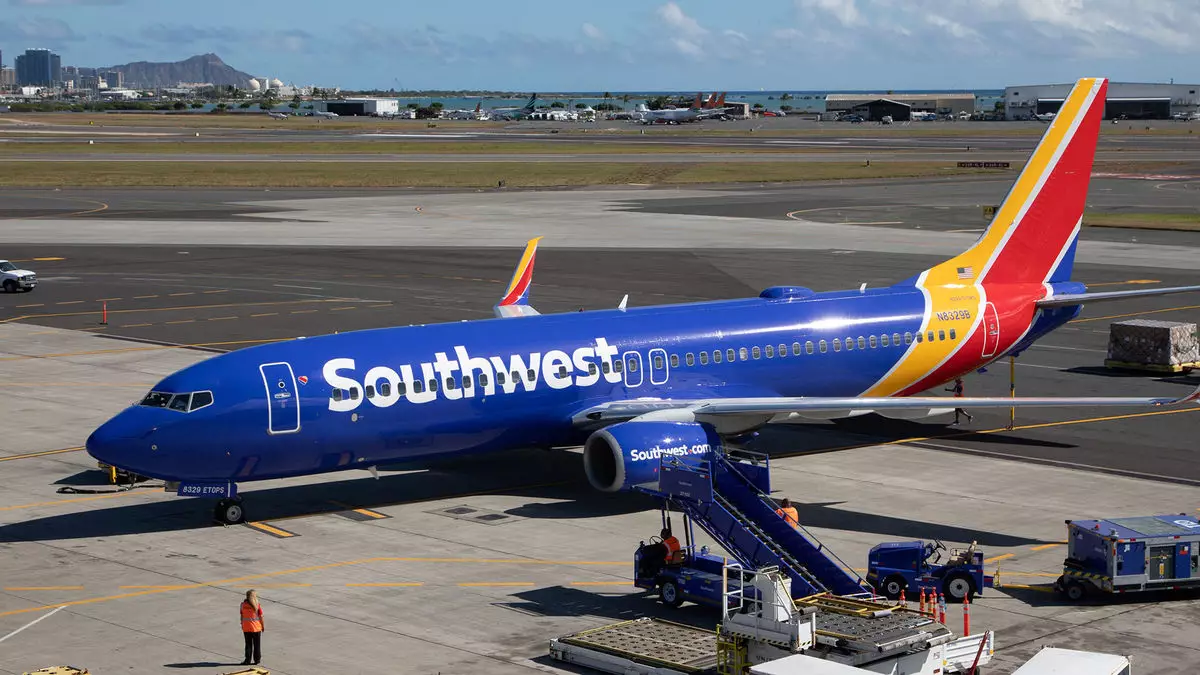The shift in political dynamics in the United States has often sent ripple effects through corporate practices, especially concerning diversity, equity, and inclusion (DEI) initiatives. In the wake of the Trump administration’s restrictive policies on DEI programs, many companies, including Southwest Airlines, are reassessing their strategies. CEO Bob Jordan acknowledges the complexities inherent in the current environment, particularly following President Trump’s executive orders aimed at dismantling DEI frameworks within federal agencies. Although these orders do not directly influence the private sector, there remains significant unease among corporate leaders about potential ramifications for businesses that continue to champion DEI values.
The core issue is not merely about adhering to policies but about nurturing an authentic cultural shift within organizations. Jordan emphasized the importance of cultivating a DEI culture at Southwest Airlines while recognizing the political challenges at hand. “As needed, we’ll be evaluating those and understanding what we may need to do,” he said during the company’s quarterly earnings call. This statement underscores the precarious balance executives must maintain between compliance with governmental expectations and their moral commitments to fostering inclusive workplaces.
Changes in Leadership and Messaging
Recently, significant changes in leadership have caught the industry’s attention. Juan Suarez, formerly the vice president of diversity, equity, and inclusion at Southwest, altered his title to reflect a broader scope of responsibilities—now branding himself as the vice president of corporate citizenship and chief inclusion officer. This rebranding could signify a strategic pivot for the airline, suggesting a shift from narrowly defined DEI efforts towards a more comprehensive approach to inclusion that aligns with corporate social responsibility (CSR) initiatives. This move could be interpreted as Southwest’s effort to adapt to a landscape increasingly skeptical of formal DEI frameworks.
Reflecting on Long-Term Values
Despite these changes, it’s essential for Southwest to anchor its practices in fundamental values. Jordan’s tenure of over three decades positions him as a veteran in understanding what it takes to cultivate a diverse workforce. In light of shifting regulatory and political environments, retaining focus on the intrinsic benefits of diversity—such as enhanced creativity, better problem-solving, and increased employee satisfaction—can help the airline navigate tumultuous waters.
Southwest Airlines, like many corporations, is at a crossroads where the principles of DEI will be critically tested. With societal expectations evolving and public space for corporate accountability expanding, the need for companies to articulate their DEI commitments becomes imperative. Ultimately, the effectiveness with which Southwest Airlines can navigate these changes will hinge on its ability to harmonize its internal objectives with the external realities of the political landscape, all while maintaining a transparent dialogue with its stakeholders. In a world where corporate culture and commitment to diversity are increasingly scrutinized, the path forward may not be straightforward, but it remains essential.


Leave a Reply